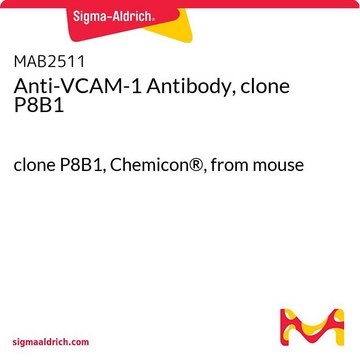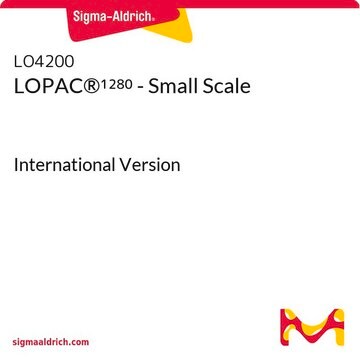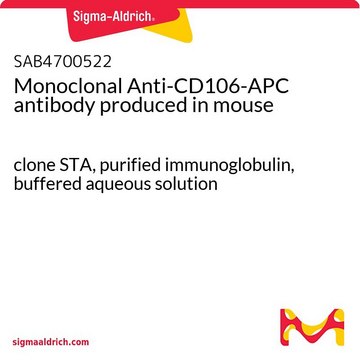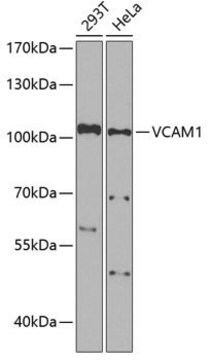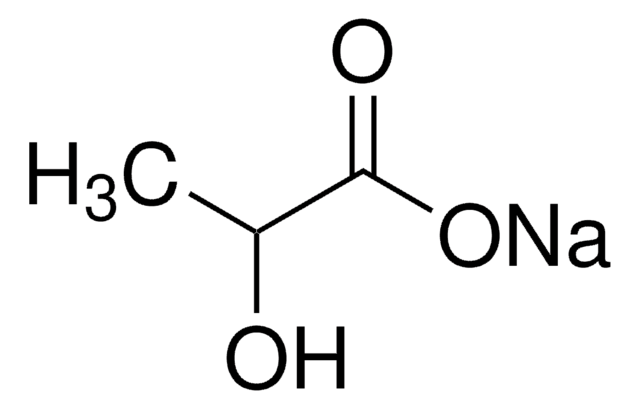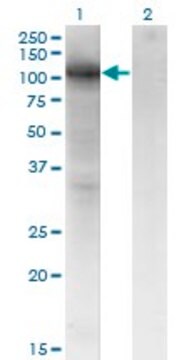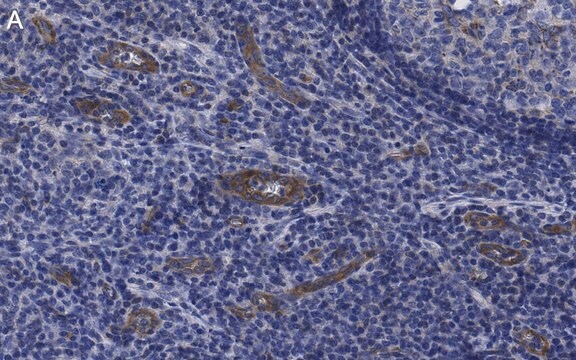V9263
Monoclonal Anti-Vascular Cell Adhesion Molecule 1 antibody produced in mouse
~1 mg/mL, clone 1.4C3, purified immunoglobulin, buffered aqueous solution
Synonym(s):
Anti-VCAM-1
About This Item
Recommended Products
biological source
mouse
Quality Level
conjugate
unconjugated
antibody form
purified immunoglobulin
antibody product type
primary antibodies
clone
1.4C3, monoclonal
form
buffered aqueous solution
mol wt
antigen 110 kDa
species reactivity
human
concentration
~1 mg/mL
technique(s)
immunohistochemistry (formalin-fixed, paraffin-embedded sections): 2-4 μg/mL using human tonsil tissue
immunohistochemistry (frozen sections): 2-4 μg/mL using human tonsil tissue
western blot: suitable
isotype
IgG1
UniProt accession no.
shipped in
wet ice
storage temp.
−20°C
target post-translational modification
unmodified
Gene Information
human ... VCAM1(7412)
General description
Immunogen
Application
Physical form
Disclaimer
Not finding the right product?
Try our Product Selector Tool.
recommended
Storage Class Code
12 - Non Combustible Liquids
WGK
WGK 2
Flash Point(F)
Not applicable
Flash Point(C)
Not applicable
Certificates of Analysis (COA)
Search for Certificates of Analysis (COA) by entering the products Lot/Batch Number. Lot and Batch Numbers can be found on a product’s label following the words ‘Lot’ or ‘Batch’.
Already Own This Product?
Find documentation for the products that you have recently purchased in the Document Library.
Articles
Cell based angiogenesis assays to analyze new blood vessel formation for applications of cancer research, tissue regeneration and vascular biology.
Our team of scientists has experience in all areas of research including Life Science, Material Science, Chemical Synthesis, Chromatography, Analytical and many others.
Contact Technical Service